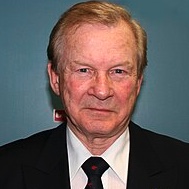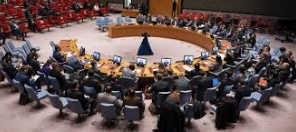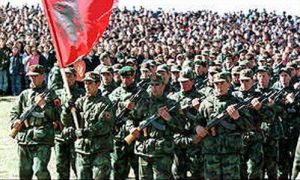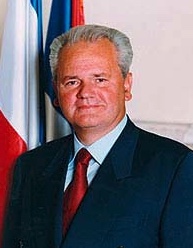

I’m already on record as having some considerable disagreement
with the diplomatic activity that brought us to the current state of
affairs in Kosovo. But I have to confess that reading news accounts
of Operation Allied Force and watching the dramatic images of NATO air
power on television, my soldierly status automatically kicks in and
there’s one consideration that’s uppermost in my mind — to bring
this business to a positive conclusion with an absolutely minimal loss of
life.

That’s a soldier’s instinct doing the thinking. But, that being said, I have
to say I’m really disturbed to see Canada and the rest of the NATO member
nations committing an act of war without the backing and foundation of an
authorizing resolution from the United Nations Security Council. Frankly,
it sets a very dangerous precedent, and it bothers me a lot.
We all know the rationale and the explanation for using NATO as the
vehicle for our operation against Slobodan Milosevic instead of
going through the UN — that China would be opposed, and the Russians’
long-standing friendship with the Serbs would mean that both of
these permanent Security Council members would surely cast a veto against
any UN resolution that authorized using force in the Balkans.

Currently, China is acting as president of the Security Council, but
I can’t help recalling that just a few weeks ago Canada assumed the
rotating presidency and, justifiably, we took a lot of pride in that
role.
Well, today we’re saying, ”We don’t like the probable result of
Security Council debate, so we’ll bypass it and simply use NATO to
achieve our purpose.”
The very premise of the argument used to justify the current bombing
campaign seems to me to be open to some question.
If we’re prepared to punish Milosevic for his treatment of the
ethnic Albanians in Kosovo, then presumably we should also be prepared to
mount air attacks against Ankara for the Turks’ treatment of their
Kurdish minority, and the same applies to Beijing for the brutal
Chinese suppression of the Tibetans.
And then there’s Indonesia and the treatment of East Timor. The list
goes on and on.
It’s not hard to understand why Moscow might be concerned about the
precedent that’s being created here, regardless of its feeling of
brotherhood with the Serbs. When you think of Chechnya and fledgling
independence movements in some of the other provinces of the old
Soviet empire, their concern is obvious.

There’s another point I’d like to make, and it concerns the Kosovo
Liberation Army. It was declared a terrorist organization by the CIA
as recently as 12 months ago. Yet today, with the spin that’s being
put on this operation, you would be forgiven for thinking that
they’re probably eligible for the next Nobel Peace Prize.
The truth of the matter is that it has obviously been in their
interest to provoke the Serbs. And it’s equally true that most
governments facing a separatist or independence movement tend to
react with a heavy hand. That’s true even of ourselves, when you recall
that we invoked the War Measures Act over a few bombs in mailboxes and a
couple of kidnappings.
Here again, it’s worth remembering that until today, when I understand
that they are really getting ruthless, the Serbs allowed TV cameras
pretty free run around the country. When Turkey launches an
offensive against the Kurds, you can bet that CNN won’t be there.
I’m not saying that it isn’t despicable — because it is — but this
isn’t the first case of ethnic cleansing the world has ever seen.
The UN itself assisted in it in Cyprus in 1974, moving both Turks and
Greeks to new locations.
I don’t want to make light of 2,000 deaths, and I’m not. But considering
the number of people being pushed around, the loss of in Kosovo is really
low. And remember that of those 2,000, probably 25 per cent were Serbs —
they lose that many people in a day in Sudan. The death count — tragic as
it is — really isn’t that high.

What is Milosevic’s strategy in all of this? Quite frankly, they want the
northern half of Kosovo. That’s where monasteries and Serbia’s spiritual
heartland are located. And that’s where the mines and natural resources are.
They are out to grab as much as they can in the next 48 hours or so,
and then they’ll be in a pretty good position.
Whenever there’s a ceasefire, everything will be frozen in place on
the ground and then they’ll be quite happy to give away the southern
half, which will immediately join Albania. At least that’s the way this
soldier sees it.